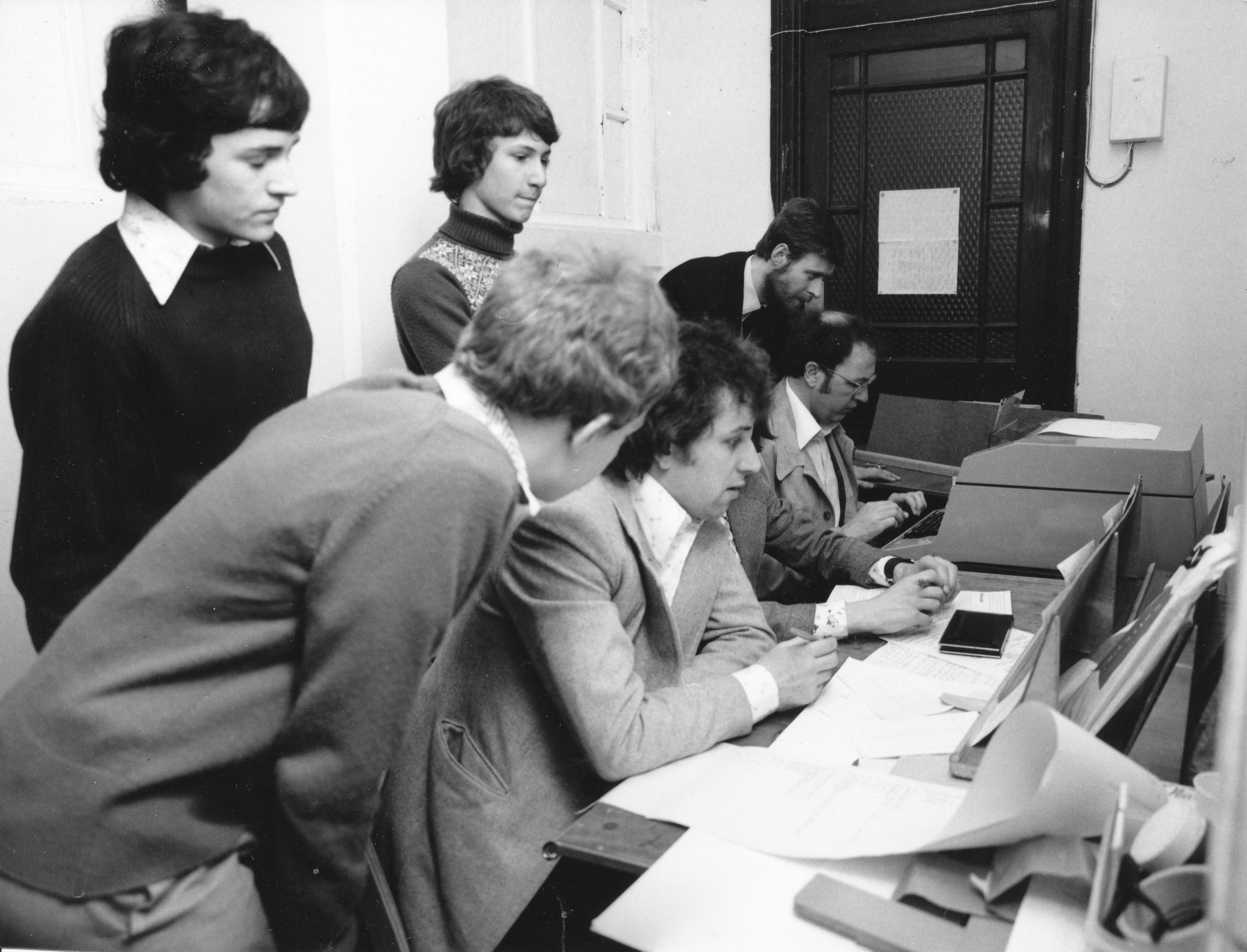
BCN wishes Happy Birthday to FM Simon D Brown (14-x-1960)
BCN remembers Charles Fox (09-xi-1866 11-x-1935)
Charles Masson Fox was born on Friday, November 9th 1866 in Falmouth, Cornwall. his father, Howard, was 29 and his mother, Olivia Blanche Orme, was 22. He had one brother and two sisters.
His sister Olivia Lloyd was born on 5 February 1868 in Falmouth, Cornwall, when Charles Masson was 1 year old. His sister Stella was born on 11 December 1876 in Falmouth, Cornwall, when Charles Masson was 10 years old. In 1881 he was living in Sherborne, Dorset. In 1901 he was once more living in Falmouth and his profession was that of a timber merchant. His brother Howard Orme died on 7 June 1921 in Falmouth, Cornwall. His father Howard passed away on 15 November 1922 in Cornwall. His mother Olivia Blanche passed away on 12 March 1930 in Falmouth, Cornwall, at the age of 85.
Sadly, neither Hooper & Whyld, Sunnucks or Golombek mention Fox in their works.
Here is an extensive article from the British Chess Problem Society (BCPS) written by CJ Feather
From Wikipedia :
“Charles Masson Fox (9 November 1866 – 11 October 1935) was a Cornish businessman who achieved international prominence in the world of chess problems and a place in the gay history of Edwardian England.
Masson Fox was born into a Quaker family (although he was not related to the Quakers’ founder George Fox) and was a cousin of the fraudulent sinologist Sir Edmund Backhouse, 2nd Baronet. Living throughout his life in the Cornish seaside town of Falmouth, Fox in the early decades of his life was a senior partner of his family’s timber firm, Fox Stanton & Company, and was also on the Board of Messrs G C Fox & Company, a long-established firm of shipping agents.
C.M.Fox’s gravestone at Budock Quaker Burial Ground
Fox is described by chess historian Thomas Rayner Dawson (1889–1951) as “a friendly man, kind, mellow, lovable, bringing peace and comfort and serene joy with him”. He was also a discreet but active homosexual. In 1909 he visited Venice with his friend James Cockerton, meeting the writer Frederick Rolfe and becoming the reluctant recipient of Rolfe’s famous Venice Letters, in which the gay subculture of Venice is vividly described.
In 1912–13 Fox was blackmailed by a woman who accused him of seducing her 16-year-old son. Eventually Fox reported the matter to the police and the woman was sent to prison for five years and her son for one year, with hard labour.[1] However, Fox was profoundly affected by the publicity surrounding the case, which was reported in detail in the local press. The predictable result of his courageous action was the destruction of his reputation, and the compromise of his business and social life in Falmouth.
Although he continued to live in Cornwall, the focus of his social life shifted to London, and in the last two decades of his life, Fox became prominent in the world of chess. He was elected President of the Cornwall Chess Association, played a prominent part in the development of the British Chess Problem Society, and is still renowned as one of the greatest ever exponents of fairy chess (chess problems with variations in the rules).”
From The Problemist Fairy Chess Supplement, 1933 :
What is the shortest game
ending in this position?

We send best wishes to WFM Sarah Natasha Longson (née Hegarty) on her birthday this day, (October 2nd) in 1988.
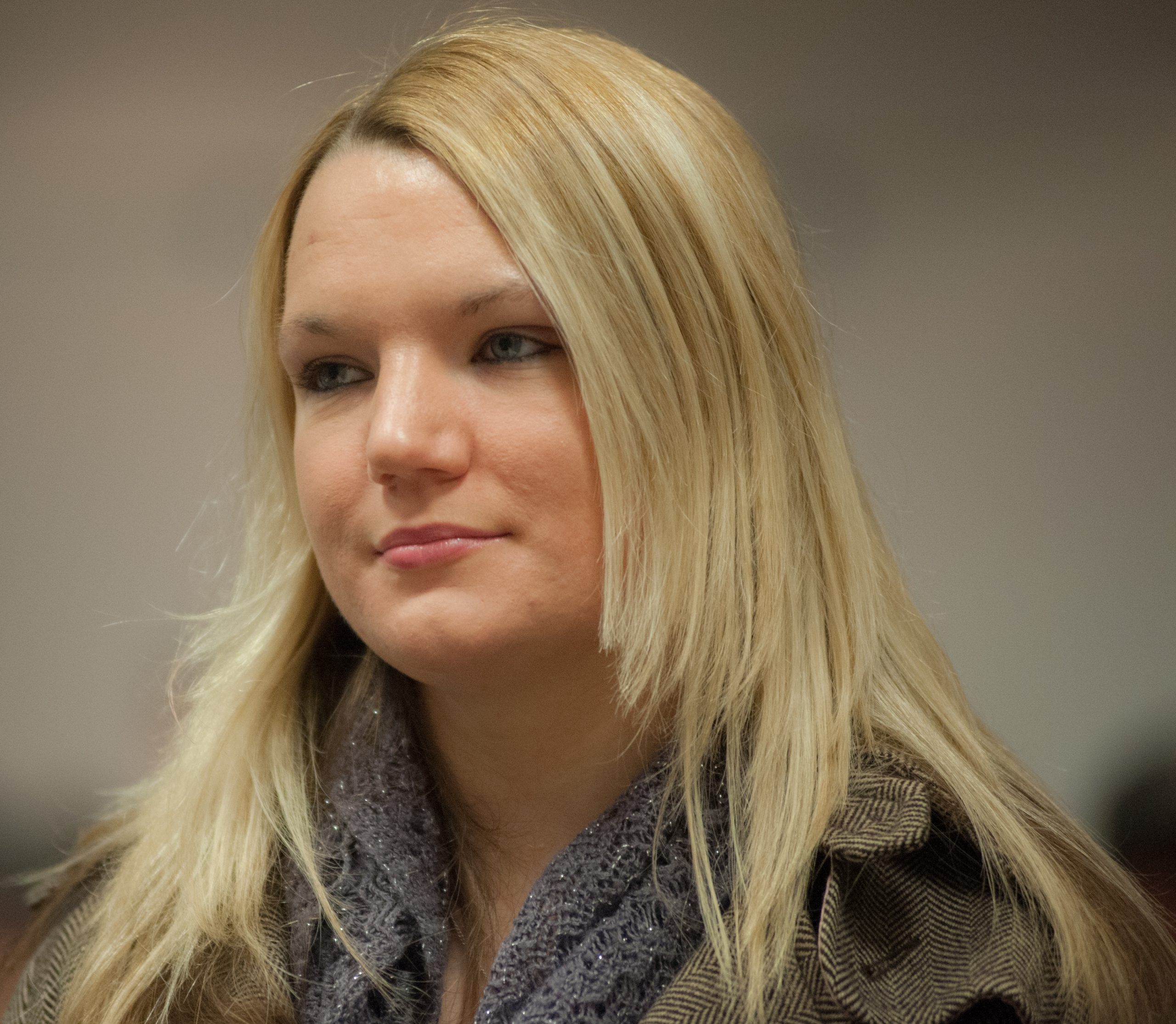
From Sarah’s web site :
“I have played competitive chess since the age of 7 when I became UK U7 Girls Chess Champion and appeared on Blue Peter where I met the then world champion Garry Kasparov. Since then I have represented England in many international competitions and in 2013 won the British Ladies Championship.”
In 2016 Sarah and partner FM Alex Longson made a successful bid for ownership of the UK Chess Challenge which was auctioned by the bankruptcy receiver of IM Mike Basman, the previous owner.
Sarah and Alex have modernised the UKCC considerably especially in the areas of communications and usage of IT.
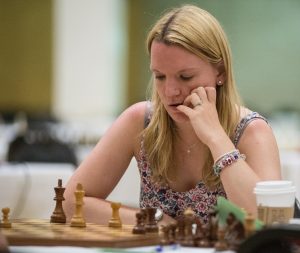
According to the ECF Sarah’s nominal club is Marple but she also plays for Stockport and 4NCL 3Cs.
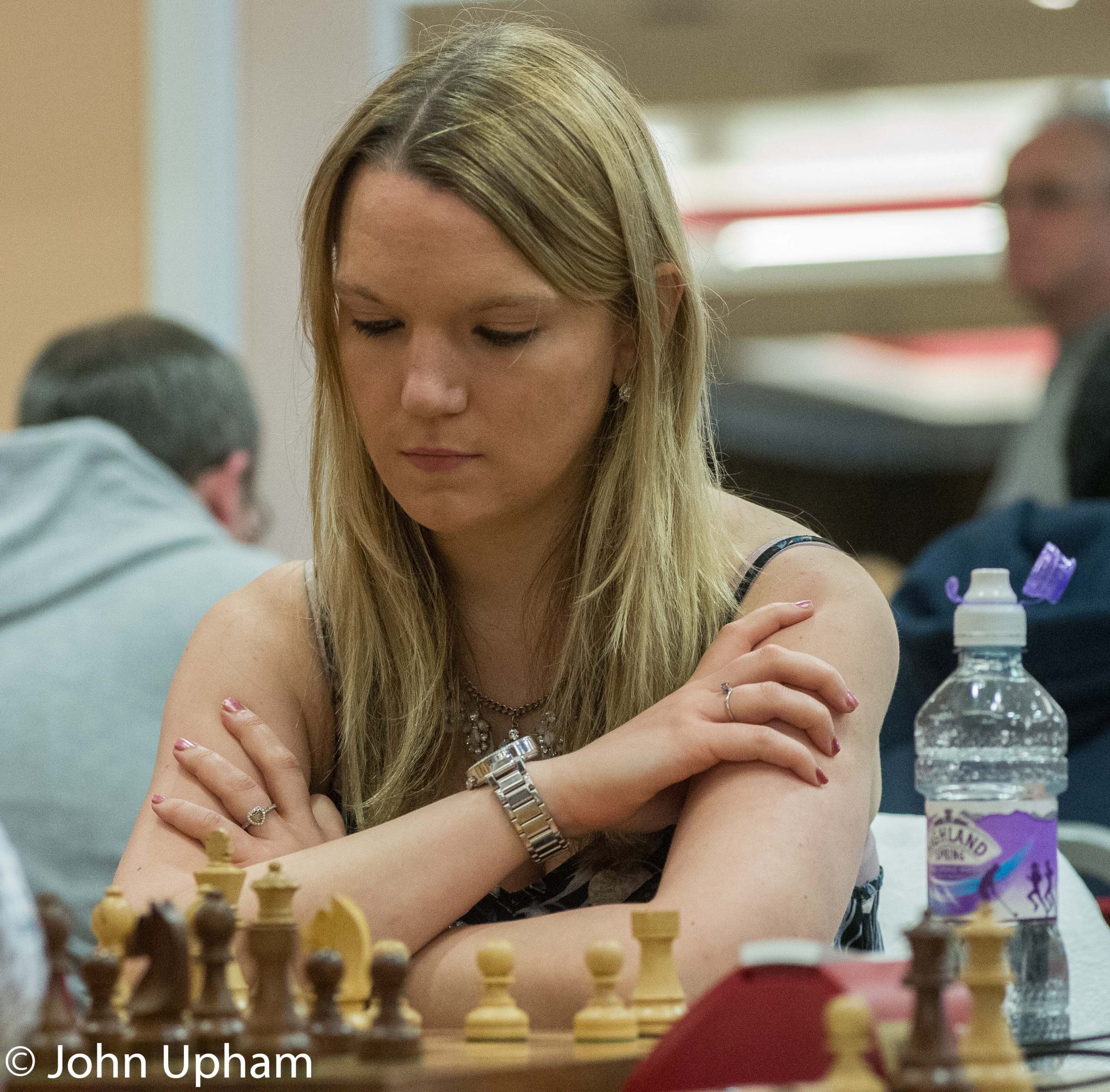
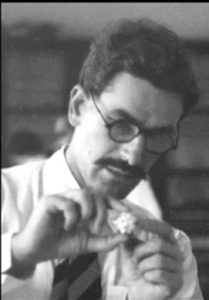
We send best wishes to Richard Kenneth Guy on his 102nd birthday, this day (September 30th) in 1916
From Wikipedia :
Richard Kenneth Guy (born 30 September 1916) is a British mathematician and professor emeritus in the Department of Mathematics at the University of Calgary.[1] He is known for his work in number theory, geometry, recreational mathematics, combinatorics, and graph theory.[2][3] He is best known for co-authorship (with John Conway and Elwyn Berlekamp) of Winning Ways for your Mathematical Plays and authorship of Unsolved Problems in Number Theory.[4] He has also published over 300 papers.[5] Guy proposed the partially tongue-in-cheek “Strong Law of Small Numbers,” which says there are not enough small integers available for the many tasks assigned to them – thus explaining many coincidences and patterns found among numerous cultures.[6] For this paper he received the MAA Lester R. Ford Award.[7]
From 1947 to 1951 Guy was the endings editor for the British Chess Magazine.[40] He is known for almost 200 endgame studies. Along with Hugh Blandford and John Roycroft, he is one of the inventors of the GBR code (Guy–Blandford–Roycroft code), a system of representing the position of chess pieces on a chessboard. Publications such as EG magazine use it to classify endgame types and to index endgame studies.[41]
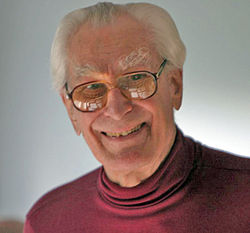
He was British Correspondence Champion in 1972 and awarded the IMC title in 1981.
According to Kings Indian I Attacking Systems :
“British Correspondence Champions 1971/72. Placed second in an ICCF master tourney 1973/76. A member of the British team in the 9th Olympiad 1977/80. Gained the IMC title in the European Team Championship 1978/81.”
According to Chessbase Correspondence Database 2020 Frank achieved his highest (ICCF) rating in January 1991 of 2410.

As White Frank would play the Queen’s Gambit via a 1.Nf3 move order. He did not play 1.e4
As the second player he would defend the closed Ruy Lopez and the Nimzo-Indian Defence.
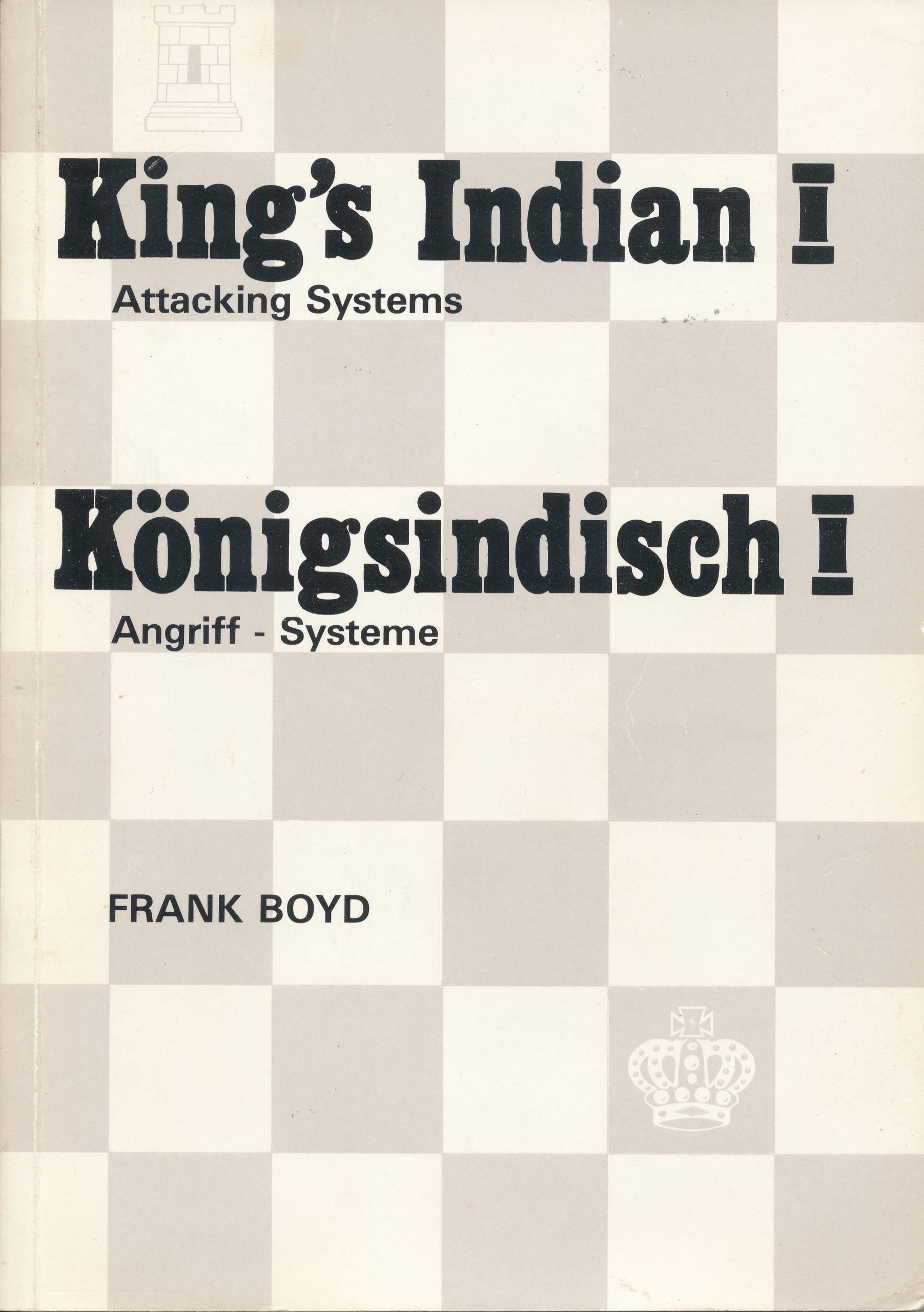
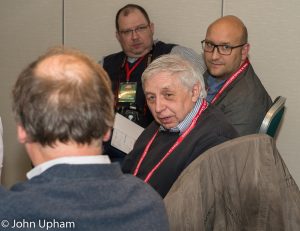
BCN is delighted to send birthday wishes to Richard James, today, July 28th.
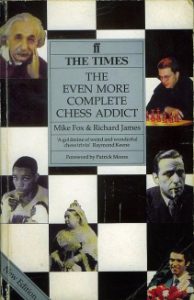
Member of Richmond & Twickenham Chess Club since 1966.
Active tournament and occasional county player 1966-1977.
I started teaching chess informally in 1973 and in 1975, together with Mike Fox, founded Richmond Junior Chess Club. When Mike moved to Birmingham in 1979 I took sole charge of the Club – where I remained until July 2006. In September 2006 Peter Sowray took over the top section of the Club while I continued to run the lower group until July 2007. I returned to Richmond Junior Club in April 2012 and am currently teaching there along with Marie Gallagher and Mark Josse.
Author of chess books (on chess for children and chess trivia) and magazine columns.
Recipient of the British (now English) Chess Federation President’s Award in 1996.
I have also worked on various chess editing projects, and am now writing for Right Way Books. My book Chess for Kids is a best seller on Amazon, receiving very positive reviews, and the companion volume for parents and teachers, The Right Way to Teach Chess to Kids was published in June 2013.
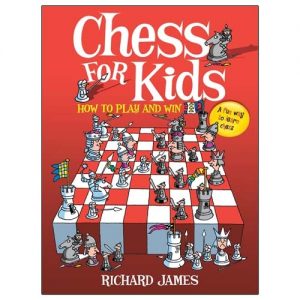
Employment:
I worked as a computer programmer in the Market Research Industry 1972-1986, writing programs to analyse market research data.
Between 1986 and 1997 I continued computer programming work on a freelance basis while working on chess projects. I was working for the Richmond Chess Initiative from its foundation in 1993 until its closure in 2005, and at some point in the mid 1990s I started being paid for running Richmond Junior Chess Club. I have been involved in running school chess clubs since 1993, and, because of my dissatisfaction with the traditional lunchtime or after-school chess club, I am always interested in hearing from schools who want to try a different approach and are prepared to listen to my views.
I was working at Hampton Court House from 2002 to 2013, providing one-to-one chess tuition, teaching reasoning and logic to Y4 and Y5 and preparing children for 11+ Verbal and Non-Verbal Reasoning tests.I left Hampton Court House in Summer 2013, due to declining interest in chess at the school, and, more generally in the Richmond area. I’m now branching out into schools in the Hounslow area, where children currently have fewer opportunities for extra-curricular activities, and where there is, by and large, less academic pressure.
I’m also the curriculum consultant for Chess in Schools and Communities, a charity putting chess on the curriculum in state primary schools, and am hoping to be able to help some schools in the Borough of Hounslow in this respect in future.
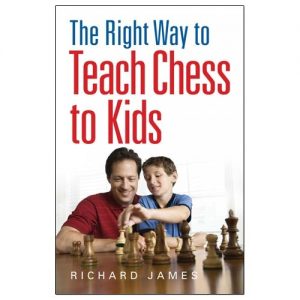
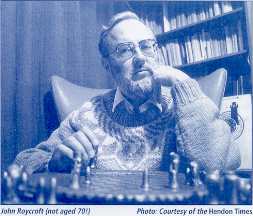
We are delighted to offer Arthur John Roycroft best wishes on his ninetieth birthday, this day (July 25th) in 1929.
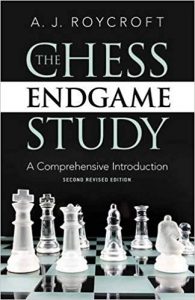
From Wikipedia :
In 1959 he was awarded the title International Judge of Chess Compositions.[1] In 1965 he founded EG, the first long-running journal exclusively for endgame studies.[2] Roycroft served as editor and publisher through 1991. The journal continues to be published, but under Dutch ownership (“ARVES”). Roycroft remained its chief editor until 2007 when Harold van der Heijden took over. His 1972 book Test Tube Chess (revised as The Chess Endgame Study, 1981) is considered one of the best English-language examinations of endgame studies.[2] He also served as the endgame study editor for the British Chess Magazine from 1973 to 1974.
Roycroft’s adaptation of the Guy–Blandford code in the 1970s resulted in the Guy–Blandford–Roycroft code, an efficient way to index endgame studies – or any chess position.[3] He also advised Ken Thompson in writing programs for endgame data bases with four and five pieces. For queen and pawn against queen some results were published by Roycroft in three booklets in 1986, years ahead of full tablebase output on CD.
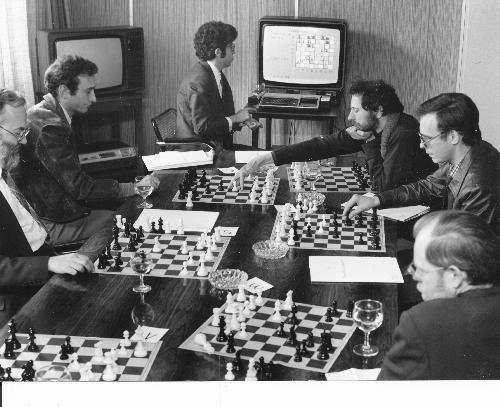
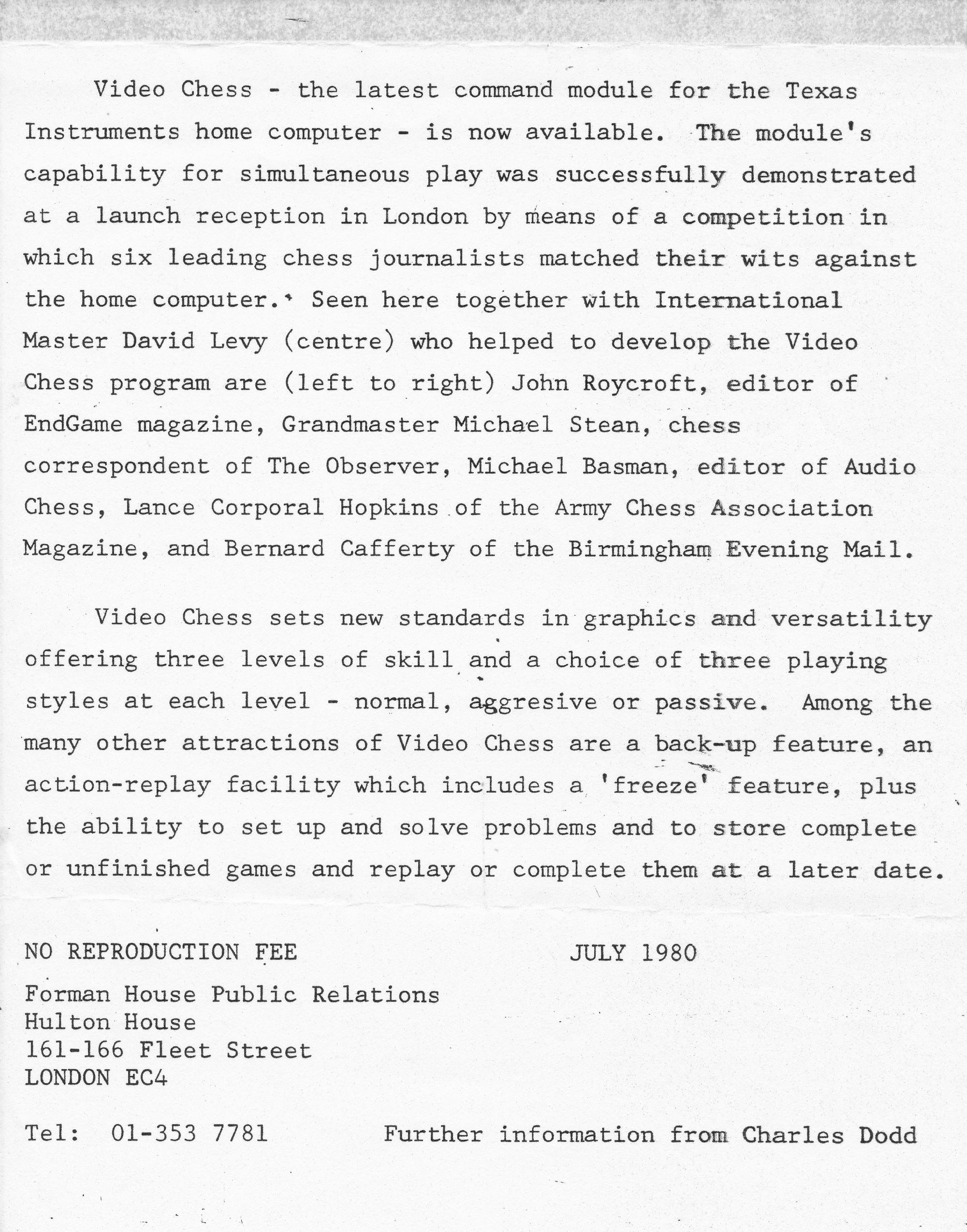
AJR won the BCF President’s Award in 1995.
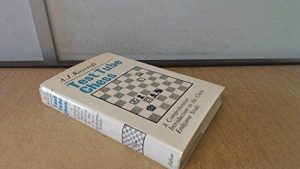
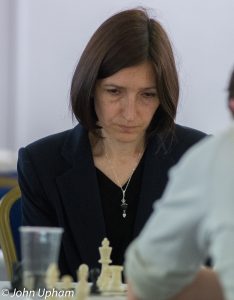
BCN wishes GM Ketevan Arakhamia-Grant best wishes on her birthday, July 19th 1968
Here is her extensive Wikipedia entry
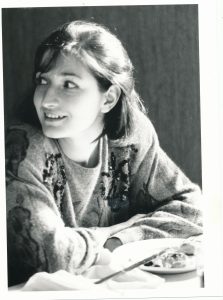
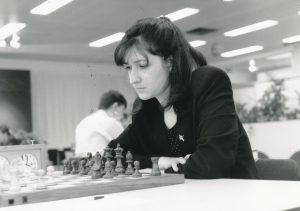
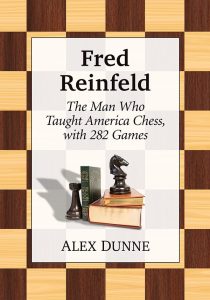
Fred Reinfeld : The Man Who Taught America Chess, with 282 Games : Alex Dunne
FM Alex Dunne

How we all laughed, back in the day. How we all laughed whenever Fred Reinfeld’s name was mentioned. All those books written for patzers. How to Win When You’re Ahead. How to Win When You’re Behind. How to Win When You’re Equal. How to Win With the White Pieces. How to Win With the Black Pieces. How to Win with the Blue Pieces. How to Win with the Yellow Pieces. Well, perhaps we made up some of those titles, but you know what I mean. Endless books of basic, over-simplified instruction, not for the likes of us.
But now, half a century or so on, I’d say that Fred is one of my heroes. A man who brought a lot of pleasure to a lot of people, teaching them the basics so that they could move onto higher level instruction later on if they chose to do so. If they didn’t, no matter: they were still enjoying chess. And he wrote some excellent higher level books as well. A particular favourite of mine was his collection of Tarrasch’s best games: I guess Tarrasch’s logical style suited Reinfeld’s style of annotations.
There was much more to him than chess books, though. In the 1930s, when he was in his 20s, he was one of the strongest players in the USA, numbering Reshevsky (twice), Fine and Marshall among his victims. At the start of 1942 he decided to give up competitive chess and concentrate on writing. It wasn’t just chess books that he wrote, either. His bibliography includes books on checkers, coin and stamp collecting, science, maths and history. He died relatively young, in 1964, at the age of 54. Granted another 20 or 30 years, who knows how many books he would have written.
It’s easy to mock, isn’t it? We can all name authors who decided it would be more lucrative to write bad books quickly than to write good books slowly. but Reinfeld’s books, although for the most part not written for stronger players, were by no means bad. He was an excellent writer and pioneering teacher who developed the ‘solitaire chess’ method of asking questions on a game and awarding points for good answers. It’s hard to disagree that he was one of the most influential figures in mid-20th century chess, and a biobibliography was long overdue.
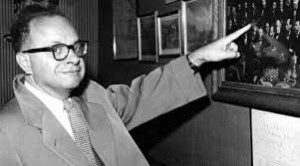
Sadly, this volume doesn’t really do Reinfeld full justice. The author, Alex Dunne, is an enthusiast rather than an academic historian. It includes 282 games (actually 281, as one game appears with two sets of annotations), mostly played by him, some with notes, either by Reinfeld or by Dunne. You might possibly want more annotations, or you might think that, as Reinfeld was best known as a writer, this doesn’t matter too much.
Dunne also provides, as you might expect, details of Reinfeld’s books, although it’s not always easy to find what you’re looking for. There’s a discussion about whether or not Reinfeld ghostwrote Reshevsky on Chess and Marshall’s My Fifty Years of Chess, but Dunne adds nothing further to what is readily available online and leaves readers to draw their own conclusions. There’s also nothing about Edward Young, generally assumed to be a pen-name of Reinfeld, although the books published under this name are included in the bibliography. (Wikipedia and other online sources claim that Reinfeld also used the pseudonym Robert V Masters, but Dunne tells us, without providing sources, that Masters was actually Sterling Publishing Company President David Boehm.)
Reinfeld produced American editions of various British chess books. I’d have welcomed more information about what, if any, changes were made. To take just one example, he mentions Epic Battles of the Chessboard by ‘Richard Cole’. He might have mentioned that the original title was Battles Royal of the Chessboard, and should certainly have given the author, Richard Nevil Coles, who, for some reason, was usually known by his middle name rather than his excellent first name, his correct surname. ‘R Nevil Coles’ would have been much better. Again, Morphy’s Games of Chess is incorrectly attributed to E Sergeant in the text, but the bibliography correctly identifies the author as Philip Sergeant.
Reverting to the games, some of Reinfeld’s opponents are identified by their first name and surname, others only by their initial and surname. I thought I knew that W Goldwater, for example, was Walter, and it took all of 5 seconds for Mr Google to confirm this.
All in all, then, something of a missed opportunity. A worthy book and a worthy subject, but lacking the rigorous historical research and accuracy we expect from this publisher. I’d like to suggest a group biography of Reinfeld and his occasional co-authors Chernev and Horowitz as a possible project for a US chess historian. Nevertheless, in the absence of anything else, if you’re interested in chess history of this period, chess literature or chess teaching you’ll still want to buy this book.
Here’s one of Reinfeld’s favourite games:
Richard James, Twickenham July 15th 2019

Book Details :
Official web site of McFarland Books
